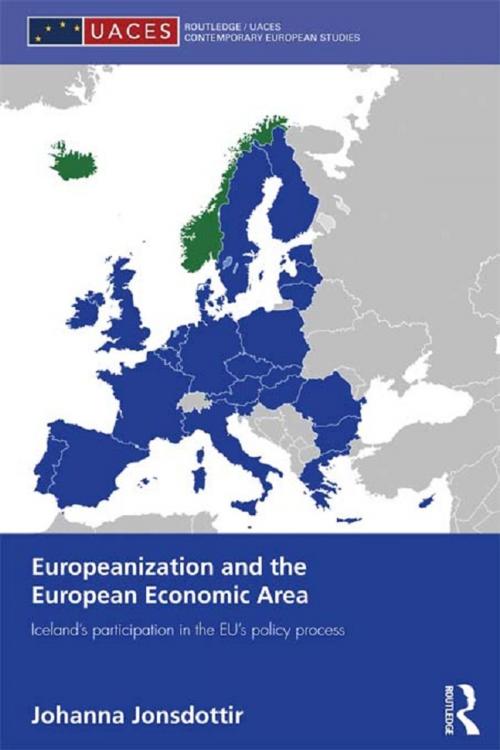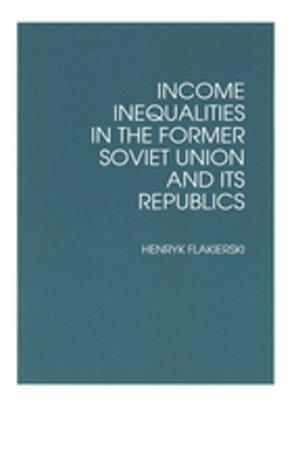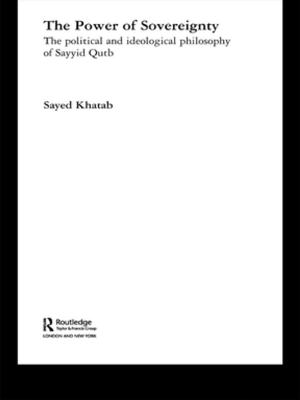Europeanization and the European Economic Area
Iceland's Participation in the EU's Policy Process
Nonfiction, Social & Cultural Studies, Political Science| Author: | Johanna Jonsdottir | ISBN: | 9781136178221 |
| Publisher: | Taylor and Francis | Publication: | January 17, 2013 |
| Imprint: | Routledge | Language: | English |
| Author: | Johanna Jonsdottir |
| ISBN: | 9781136178221 |
| Publisher: | Taylor and Francis |
| Publication: | January 17, 2013 |
| Imprint: | Routledge |
| Language: | English |
This book examines Europeanization in the European Economic Area (EEA), exploring whether non-member states can have an input into EU decision-making and whether the EU can successfully export its policies within the framework of the EEA.
Iceland, Norway and Liechtenstein, while not EU member states, are members of the European Free Trade Association (EFTA) and signatories of the EEA Agreement. The Agreement allows participation in the EU’s internal market but also requires extensive and continuous adaptation to EU rules. Whilst existing literature is limited mainly to the EU’s impact on its own member states or neighbours to the east, this book extends the study of Europeanization to the EEA, exploring whether Iceland, as a non-member state, can have an input into EU decision-making and, conversely, whether the EU can ensure that its policies are adhered to outside of its borders. The author argues that, although the EEA Agreement is not without its challenges, it has proved considerably more resilient than originally expected. This raises the question of whether the EEA provides a realistic alternative to EU membership for other states with close ties to the EU.
Delving into the largely unknown intersection between the EU and the EEA and providing important new insights into the Europeanization process, Europeanization and the European Economic Area will be of strong interest to students and scholars of European Union politics and policy-making, European Union Enlargement, Nordic politics and comparative politics.
This book examines Europeanization in the European Economic Area (EEA), exploring whether non-member states can have an input into EU decision-making and whether the EU can successfully export its policies within the framework of the EEA.
Iceland, Norway and Liechtenstein, while not EU member states, are members of the European Free Trade Association (EFTA) and signatories of the EEA Agreement. The Agreement allows participation in the EU’s internal market but also requires extensive and continuous adaptation to EU rules. Whilst existing literature is limited mainly to the EU’s impact on its own member states or neighbours to the east, this book extends the study of Europeanization to the EEA, exploring whether Iceland, as a non-member state, can have an input into EU decision-making and, conversely, whether the EU can ensure that its policies are adhered to outside of its borders. The author argues that, although the EEA Agreement is not without its challenges, it has proved considerably more resilient than originally expected. This raises the question of whether the EEA provides a realistic alternative to EU membership for other states with close ties to the EU.
Delving into the largely unknown intersection between the EU and the EEA and providing important new insights into the Europeanization process, Europeanization and the European Economic Area will be of strong interest to students and scholars of European Union politics and policy-making, European Union Enlargement, Nordic politics and comparative politics.















